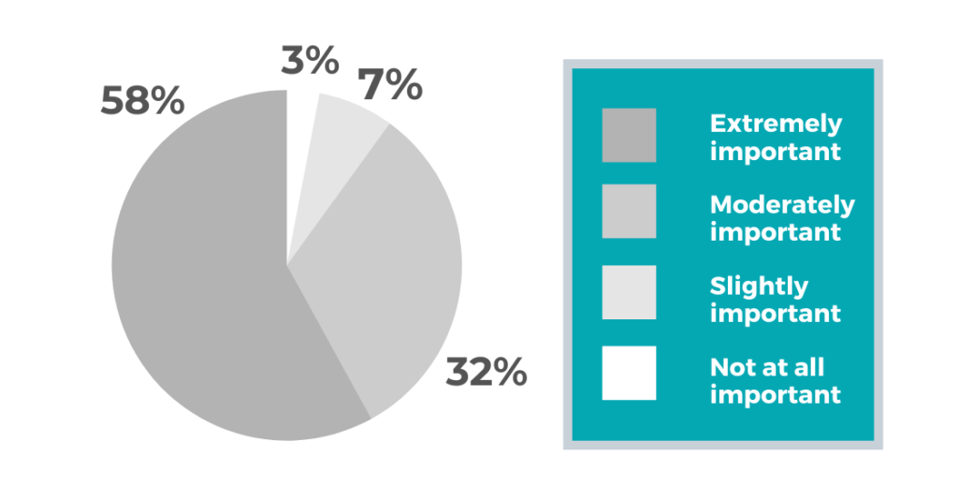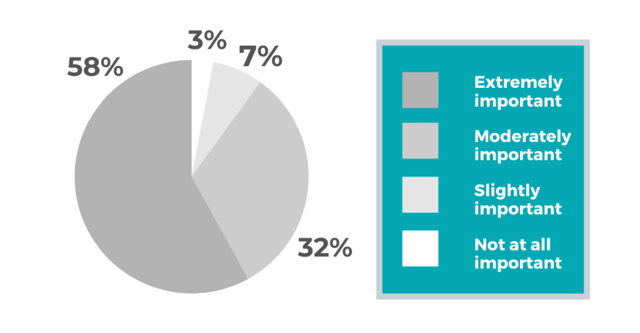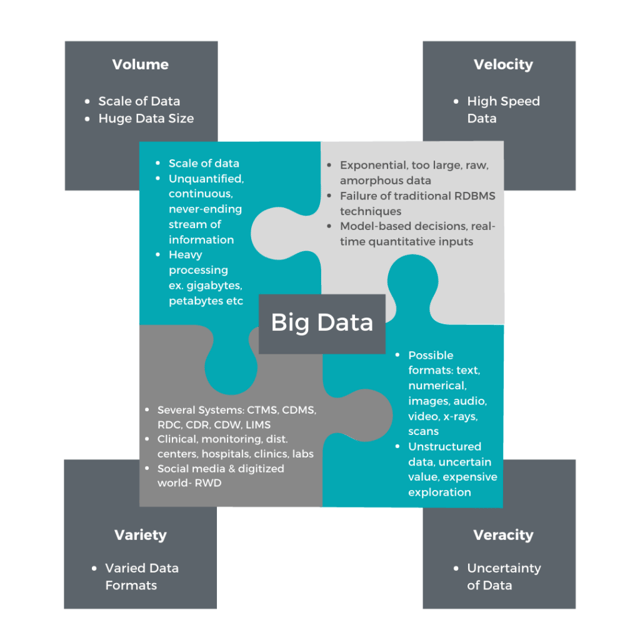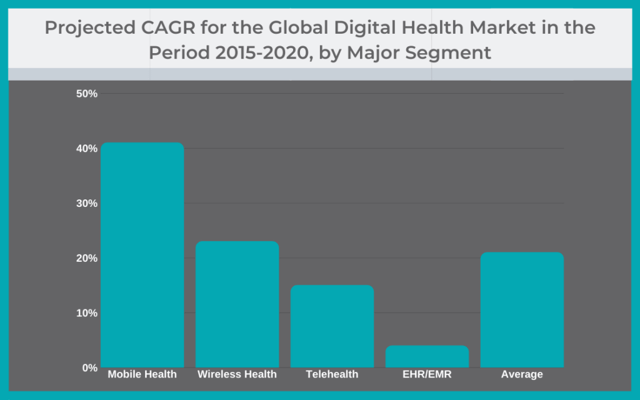October 29, 2019

October 29, 2019

Big data is hitting us from all angles, and life science industries are not being left out. Why? Your life depends on it, literally. Life sciences generate lots of large and complex data every single minute.
The amount of data that needs to be analyzed will keep increasing as technology advances. The good news is that the era of big data analytics is here, solving such challenges one byte at a time.
Big data refers to huge data sets that can be dissected to reveal useful patterns of human behavior. It involves extraction of information, analysis and making decisions using data sets so large and complex that they cannot be dealt with using traditional methods.
Is big data important in life science industries? Yes.
What are its benefits? What challenges are being faced right now?
It’s guaranteed that life science industries will keep integrating big data into their core solutions. This is due to the immense benefits it offers. These include:
Life science industries are fragile. Accurate risk assessment can help reduce the spread of epidemics, increase life expectancy and prevent fatalities among other benefits.
The advancement of big data is making it easier to notice trends early. This makes it easier to create lasting solutions before things get out of hand.
With big data, an organization can:
Clinical trials are the pillars of the pharmaceutical drug discovery process. They help determine whether a device or a treatment method is safe for humans.
Such trials are carried out to:
The outcome is to identify whether a strategy, device or treatment:
Big data will help EMRs (Electronic Medical Records) and clinical trial technologies to be more effective. According to a survey by Applied Clinical Trials, when asked how important is it for the drug development industry to embrace the utilization of big data practices in clinical trials, 58% responded extremely important.

Big data presents possibilities such as better patient recruitment, effective engagement, efficient trials and high-quality results. This leads to improved predictive modeling of drugs and biological processes through clinical and molecular data. Real-time trial monitoring improves safety and operational procedures.
Currently, most of medicine uses the “standards of care” model. This is where responses among a large group of people and clinical trials influence the provision of care.
With personalized medicine (also known as precision medicine), you will be treated based on your unique characteristics such as gender, age, height and weight among others. Genetic testing is one way we are able to gather data about how certain diseases and conditions may be a higher or lower risk depending on genetic profiles. Using this data, biopharmaceutical companies are able to conduct innovative research to determine the effects of genetic variation on the safety and effectiveness of specific medicines. They are also able to develop targeted therapies depending on genetic statistics.
The personalized medicine market may increase by over 11% CAGR by 2024. Big data, artificial intelligence and blockchain will significantly influence the growth of this market.
With these major advancements, we are now able to access information that Hippocrates, the father of modern medicine, could not. For example, by the end of 2013, US health care had generated 150 exabytes of data. This number just keeps going up, making big data inevitable.
In personalized medicine, different types of data are collected. They include clinical, omics, claims and user-generated data. They are processed and integrated into smart data. This is then used to determine which specific treatments and prevention plans will work for a particular patient.
Research and development (R&D) in the pharmaceutical sector can be notoriously long. It can take more than 10 years to complete a research project. Bringing just one drug to the market can cost $2.6 billion.
Big data enhances and hastens drug development. It improves components such as drug discovery, the design of clinical trials, and the detection of adverse drug reactions.
Big data helps to:
In the pharmaceutical industry, utilizing data effectively helps companies identify potential drug candidates, then develop them to become approved, effective medicines faster.

Some drug prices are still too high for many. The US government is pushing hard against this. Life science industries now use big data to optimize and justify their research budgets. This data also helps them show their value clearly so that they can defend their profit forecasts and margins. With big data, marketers can segment prospects and customers into targeted groups. This is done according to behavior, and not just demographic or transaction history. Combining sentiment metrics from social media with CRM data helps marketers generate a holistic perspective of a customer’s lifetime value.
In 2017, Internet of Medical Things (IoMT) was valued at 41.2 billion. It’s expected to hit 158.1 billion in 2022. Wearable, implantable and remote health monitoring devices enable data to be transmitted from a patient’s live location directly to a hospital or a healthcare service provider.

As this market rapidly expands, big data will help analyze the information that comes from wearable devices.
There is a growing trend towards electronic data capture, record keeping and digital trial management. Wearables and biosensors are not only useful in consumer fitness, but also in clinical trials.
Research groups, pharmaceutical companies and clinicians get real-time trial monitoring data. The feedback is then used to create shorter and more effective trials. Results are of high value to multiple stakeholders.
Traditionally, viruses are discovered when human beings exhibit symptoms. However, this method has a major flaw. Other potentially deadly viruses may emerge due to transmission from one species to another. Examples of this include HIV and Ebola.
DNA sequencing can help in the discovery of new viruses. This is where scientists determine the sequence of the nucleic acid. It requires testing against massive databases. And that’s where big data comes in.
Big data is still relatively new. And life sciences are a late entry into it. Here are some challenges that need to be looked into.
There’s no doubt that big data is revolutionary. However, it continues to access sensitive information. As more personal information gets collected, there is an ever-increasing need for more powerful data protection methods.
Adoption of big data creates so many expenses and a lot of involvement. For an on-location solution, you will need new hardware and personnel. You’ll also incur more electricity costs.
You may need to pay for setting up and maintaining software and cloud services. Additionally, you should constantly maintain the necessary frameworks.
Big data brings complex issues to many organizations. They get a high volume of unstructured data from internet-connected sensors, social media, website interactions, clinical visits and imaging among other sources. Many organizations were just not designed to handle such volumes, especially of unstructured data.
Data governance refers to the management of the usability, availability, security and integrity of data in a firm. There is still a huge data governance nightmare for many firms that do not yet understand how to properly use big data.
Big data is going to have an even bigger impact in life science industries. However, some of the challenges it poses can not be ignored. To mitigate them, it is important to hire data science consultants. They’ll help you navigate the intricacies of big data analytics.
ProPharma is a premier provider for quality, regulatory, clinical and nonclinical development consultants. With over 20 years of experience, ProPharma’s data science team is stocked with elite industry professionals who know precisely how to help our clients identify data opportunities, assess viability, and develop plan execution.
Contact us to find out how ProPharma Group can improve your big data extraction and analysis.
October 7, 2020
In the era of technological disruption, data science is a disruptor for the books. Today’s data scientists develop processes, algorithms, and systems to mine structured and unstructured data with the...

July 29, 2024
What is Digital Transformation? While there are many different definitions of digital transformation in life sciences, the core concepts they all have in common are digital technology and creating...
June 10, 2021
The proper use of data science and predictive analytics can improve any online business, in or out of the medical field, but plays a particularly unique role in the life sciences. Science seeks truth...